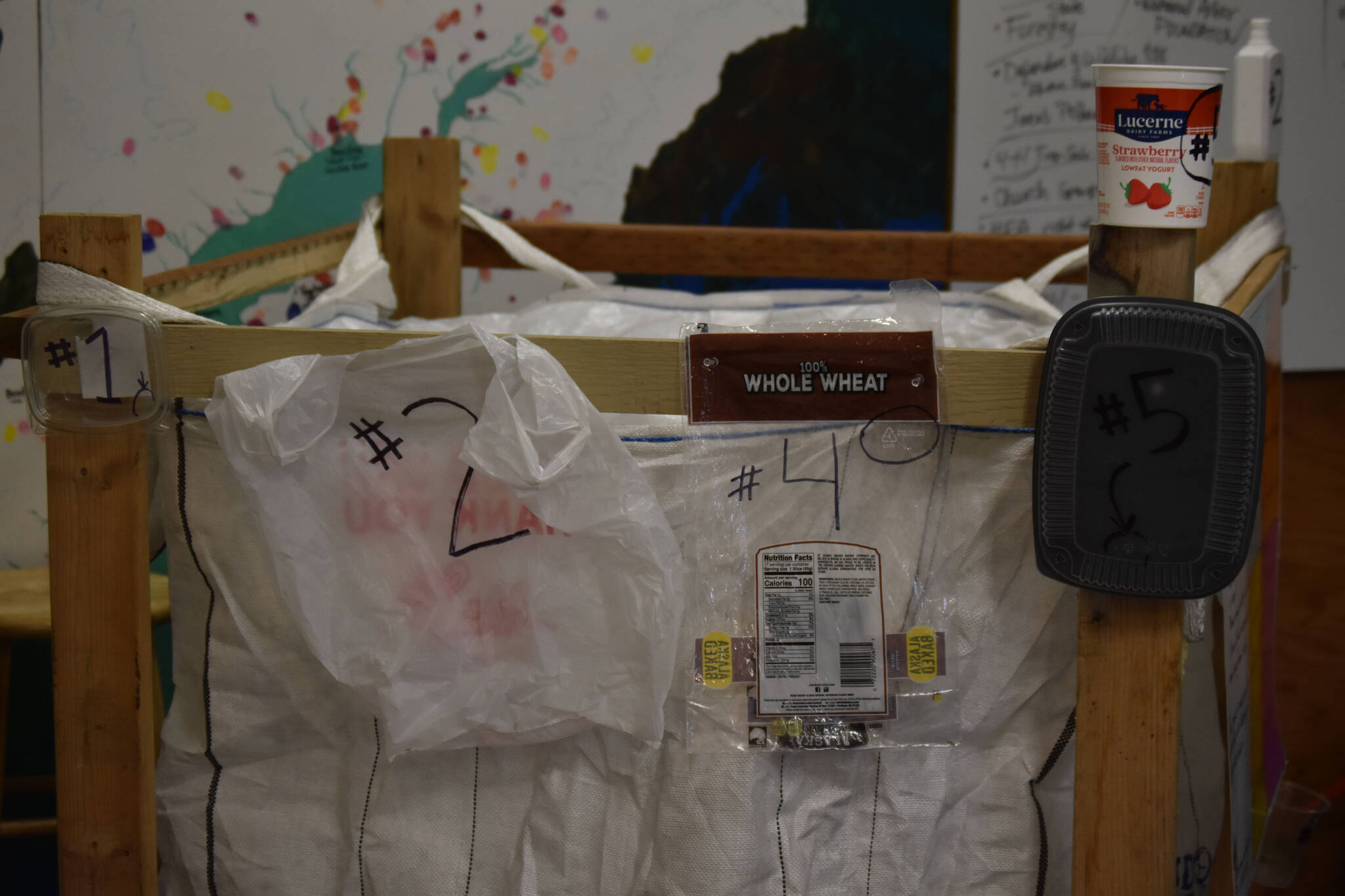Local environmental nonprofit Cook Inletkeeper is collecting plastics in Soldotna to be sent to Seward and transformed into synthetic lumber in collaboration with ReGroup, a recycling advocacy organization from the Kenai Peninsula.
Ben Boettger, energy organizer at Cook Inletkeeper, said the collection began in mid-July. The organization is providing space and logistics support for the effort, collecting filled super sacks of recyclable materials and delivering them to Seward.
Super sacks are large weather-resistant white bags, held in wooden frames. Once filled, they are closed off at the top and lifted out of the frame, easily replaced with a new bag. Boettger said Cook Inletkeeper has seven of them currently in rotation.
These super sack receptacles can be found on either side of Soldotna. Toward Kenai, plastics are being collected at the Cook Inletkeeper Community Action Studio, located next to the Mattress Ranch on the Kenai Spur Highway. On the other side of town, plastics can be deposited at The Goods + Sustainable Grocery, in the location formerly held by the Caribou Family Restaurant on the intersection of Kalifornsky Beach Road and the Sterling Highway.
Plastics can be dropped off at either location during business hours, Boettger said. The Cook Inletkeeper receptacle is located inside the studio, while the receptacle at The Goods is located behind the building, in the parking lot.
Desired plastics include types 1, 2, 4 and 5. Plastic types are assigned based on the polymers used to create them. Type 1 plastic includes bottles for water or soda, as well as cooking oil or food containers. Type 2 includes milk jugs, shampoo bottles and bottles for cleaning products. Type 4 includes grocery bags, bread bags, cling wrap and bags for frozen food. Type 5 is containers for yogurt, plastic bottle caps and disposable utensils.
Plastics type 3, 6 and 7 cannot be recycled as part of this collection.
Boettger said none of the plastics need to be sorted by type, as they’re all dropped into the same bag, though they do need to be empty and relatively clean.
Plastics are loaded onto trucks and delivered to Seward every two weeks. In Seward, a collection of groups led by Patrick Simpson and the Alaska Plastics Recovery is using grant money from the Environmental Protection Agency to process the collected plastics into recycled lumber, which will then be sold. This process is planned to take place in the fall, after collection efforts throughout the late summer months.
Boettger said that the plastic collection and recycling effort in Seward aligns with Cook Inletkeeper’s mission to create a healthier habitat for fish. He said that part of Simpson’s goal is to eventually take plastic waste out of the ocean. “Ocean health is very much affected by plastic,” Boettger said.
“Microplastic fibers have been found in kelp, they’ve been found in salmon. Salmon take them into their gills and through their digestive systems,” he said.
Boettger said this even extends to plastic fibers being found in seafood, including salmon meat. Recycling plastics in this way stops the plastic from reaching the ocean, “locking it up in these durable goods like lumber.”
More information about Cook Inletkeeper can be found at inletkeeper.org.


